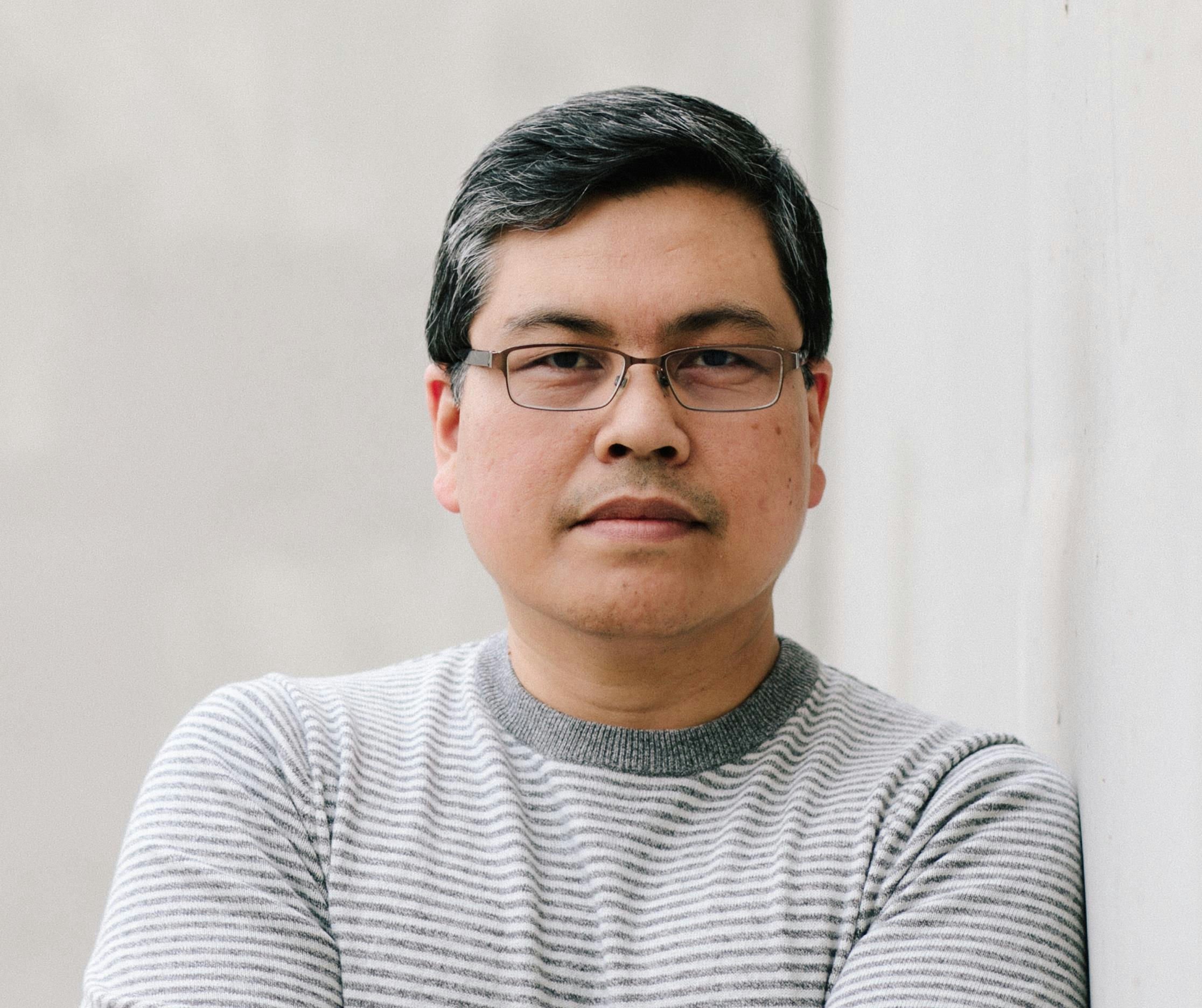Rick Barot
Broken Mirror Against Tree Trunk
The day is strong like a horse swimming across a high river,
or the day is gray, tired, and hoarse.
The tree in its annual nakedness is delicate,
or it is authoritative, like the surgeon in The Anatomy Lesson.
Longer than I can remember, I have prayed to the patron saint
of eyesight for a new way, a new accuracy.
The choreographer says that there are no new steps,
only new combinations. So I believe it.
The naturalist says the heart rate of the albatross in flight
is lower than it is at rest. I believe that too.
The artist sews through wood using hair for thread,
at the distal end of an idea we call patience.
We get so much winter here. I know it by the mountain held
in its white custody, round as a kneecap.
Or it is that dense silence in the room where a few dozen
people are observing a moment of silence.
Or the neighbors who move and leave things in the yard,
things that are like principles: mop, pennants.
Beauty strides into view all the time, clear and particular
or vague and soft, an affiliation or a polarity.
I have felt squalls in the blood and in the mind,
even though I am mostly like a mirror, its silver blood.
I have been that man in the red baseball cap,
skimming the cruel lawns of the park with his metal detector.
photo by Rachel McCauley
Rick Barot’s most recent book is Chord, which received the PEN Open Book Award, the UNT Rilke Prize, the Publishing Triangle’s Thom Gunn Award, and was a finalist for the LA Times Book Prize. Barot lives in Tacoma, Washington and directs The Rainier Writing Workshop, the low-residency MFA program in creative writing at Pacific Lutheran University. He is also the poetry editor for the New England Review. In 2016, he received a poetry fellowship from the Guggenheim Foundation.

